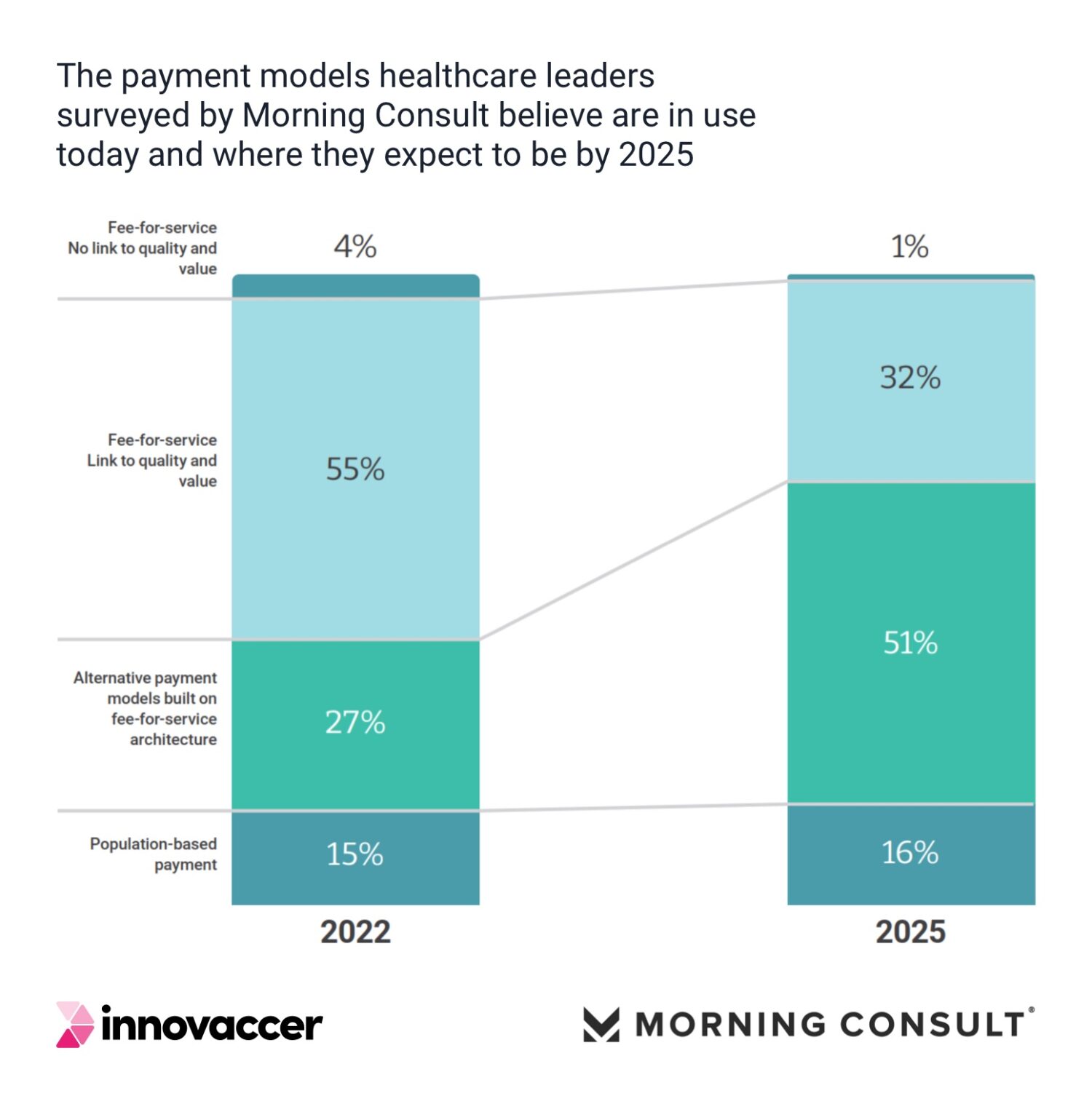Digital Health
Report: The State and Science of Value-Based Care
What You Should Know: – Providers believe 96% of payment is now value-based in some capacity, and 58% believe their EHR vendor won’t be able to support…


What You Should Know:
– Providers believe 96% of payment is now value-based in some capacity, and 58% believe their EHR vendor won’t be able to support the data strategies required to thrive under value-based care, according to a new study conducted by Morning Consult and Innovaccer.
– The 37-page national research study uncovers key IT infrastructure issues healthcare leaders said are impeding or essential for progress towards accelerating their transformation to value-based care.
The State and Science of Value Based Care
Only 4% of providers today report using pure FFS with no links to quality and value, and that plummets to 1% by 2025. Providers believe the payment model that’s historically dominated in healthcare has flamed out, and that 96% of healthcare payment today has connections to care quality, cost reductions and, in some cases, patient experience. That leaps to 99% by 2025.
Moreover, while providers report they have moved 96% of their revenue into some form of performance risk, 80% of those programs operate on a FFS architecture, where claims submission (as opposed to population-based payment) remains the driving force for value-based analysis and payment. The FFS architecture is even present in Shared Savings models, according to respondents, where healthcare costs are compared with a goal, and providers and payers share in the savings or losses.
– 58% said they didn’t believe their EHR vendor could support their enterprise data strategy.
– 42% said their data is highly fragmented and siloed, a blind spot for insights, workflows, actions, and reporting essential for value-based care delivery.
– 48% said they’re not confident their organization has the infrastructure to capture and use the full range of patient data.
– 41% said their organization needs population health analytics to advance their enterprise data/information strategy, making it the #1 capability sought among ten priorities offered.
– 68% said their organization doesn’t have the AI capabilities to drive digital transformation essential for value-based care.
– 69% of healthcare leaders said they aren’t using technology to identify at-risk patients.
– Despite a 94% increase in the number of executives who expect consumer-generated data to have a high impact on SDoH by 2025, 72% of respondents aren’t integrating medical and social determinants data.
In addition to presenting key findings on providers’ outlook on value-based care, the State and Science of Value-Based Care report covers value-based care challenges and opportunities reported by respondents; addresses the people, process, and technology gaps respondents said must be bridged; and provides expert commentary and guidance to help providers to put their data to work to accelerate their transition to value.
“The research shows a strong relationship between an organization’s investment in modern digital infrastructure and their ability to succeed with value-based payment models,” Stevens said. “Digital investments will be the deciding factor for more mature risk-bearing organizations. The key to value-based care is the ability to integrate data from EHRs and other IT silos—clinical, claims, labs, pharmacy, telehealth, remote monitoring, social determinants, consumer-generated, you name it—into a unified patient record that lets providers drive the analytics-driven workflows, care management, risk stratification, and patient engagement strategies to drive better outcomes at a lower cost.”
For more information, download the State and Science of Value-Based Care

Keep it Short
By KIM BELLARD OK, I admit it: I’m on Facebook. I still use Twitter – whoops, I mean X. I have an Instagram account but don’t think I’ve ever posted….
Asian Fund for Cancer Research announces Degron Therapeutics as the 2023 BRACE Award Venture Competition Winner
The Asian Fund for Cancer Research (AFCR) is pleased to announce that Degron Therapeutics was selected as the winner of the 2023 BRACE Award Venture Competition….
Seattle startup Olamedi building platform to automate health clinic communications
A new Seattle startup led by co-founders with experience in health tech is aiming to automate communication processes for healthcare clinics with its software…













